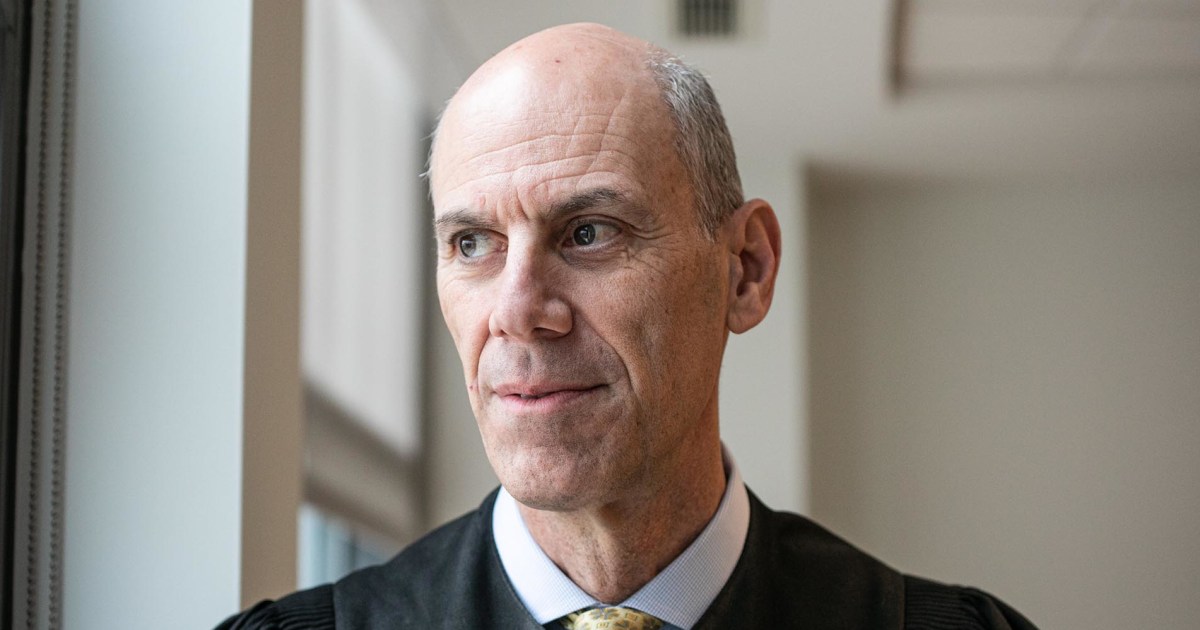
A discreet delivery pulled up outside of Idaho’s maximum-security prison near Boise in the state’s exhaustive quest for lethal injection drugs 1 1⁄2 years ago. Just outside of the prison gates, the warden said he met two people transporting pentobarbital — six vials of the liquid placed into cardboard boxes in the back seat of their car.
Then, four months later, the warden arranged another pickup, meeting two people parked on a rural intersection at Pleasant Valley and Ten Mile Creek roads, about a mile from the Idaho Maximum Security Institution.
The warden, Tim Richardson, would recall in a deposition in October that he chose to take the second transaction “off site” so as “to not draw attention to it.”
“It’s just so you cannot have, I guess, a visual on what you’re doing,” he said, according to a transcript.
The details of the deal, revealed for the first time in court documents related to litigation in the cases of two death row inmates, Thomas Creech and Gerald Pizzuto, shed light on how Idaho procured its batches of lethal injection drugs while attempting to maintain confidentiality.
Creech, 74, who was convicted of five murders in three states, was set to die by lethal injection in February 2024, but it was called off after prison staff failed to properly attach IV lines after 42 minutes. The botched execution has prompted a legal dispute to prevent the state from attempting it again.
Pizzuto, 69, convicted of four murders in two states, faced execution in March 2023, but a federal judge halted it. Pizzuto is challenging the state’s use of pentobarbital because of his medical condition, which Pizzuto’s legal team says includes advanced bladder cancer.
In court documents reviewed by NBC News, just as notable is what Richardson, now a warden at a different Idaho prison facility, was ordered by lawyers representing the state Department of Correction not to answer — including the identities of those who provided the drugs, if they were the same people each time and the type of vehicles they used.
A 2022 Idaho law shields the identities of the state’s execution team and the suppliers of lethal injection drugs. Correction officials say such secrecy makes it easier to obtain pentobarbital, given how the state has been unable to execute anyone since 2012 amid a nationwide shortage of lethal injection drugs. Idaho in 2023 also legalized execution by firing squad when it cannot obtain drugs.
Meanwhile, major pharmaceutical companies have explicitly warned states not to use their drugs for executions, citing ethical and legal concerns. Pharmaceutical distributors may buy drugs from the companies, and they could in turn be sold to hospitals, clinics, nursing homes and other legitimate customers.
But when it comes to supplying prisons that may want to use a manufactured drug for executions, drug companies have sued states for the return of their chemicals.
“What we know at this point is that every single drug manufacturer of any drug that could be potentially used for lethal injection, including pentobarbital, has not only objected to its use, but put contractual restrictions on their sales,” said Corinna Barrett Lain, a professor at the University of Richmond School of Law who studies lethal injection executions. “They have every right to do so as a private company that stands to lose a great deal of money if their drugs are used in lethal injection. They are risking the possibility of botched executions with their drugs, leading them to potential financial and legal damages. It’s terrible for business.”
The Idaho Department of Correction did not immediately respond to a request for comment about where its most recent pentobarbital purchases came from. The state attorney general’s office declined to comment this week, citing the pending litigation.
Like other states, Idaho has turned to so-called compounding pharmacies for its lethal injection drugs, doing so for executions in 2011 and 2012. But the alternative has drawn concerns over quality and safety as compounded drugs are not approved by the Food and Drug Administration.
In the court filings, Idaho correction officials have suggested the pentobarbital procured by the state in 2023 and 2024 was not compounded but manufactured by an FDA-approved pharmaceutical company.
“My belief is that they probably were” manufactured, Richardson said in his deposition about the October 2023 delivery he received, adding, “They were in, like, an original-type manufacturer’s box.”
He agreed that the second delivery he acquired during a roadside meeting in February 2024 was the same.
In another court filing in October, the Idaho Maximum Security Institution’s current warden, Randy Valley, described the state’s supply of pentobarbital as having been sourced from “an FDA-approved manufacturer,” and revealed the state received a new batch of “six additional 2.5-gram vials of certified manufactured pentobarbital” that same month.
Court documents indicate the state has spent $200,000 in total for three separate purchases of pentobarbital, supplies that all expired after going unused in the wake of Creech’s failed execution.
In exhibits filed in Pizzuto’s case, two pharmaceutical companies that manufacture injectable pentobarbital — Hikma, whose U.S. headquarters are in New Jersey, and Sagent, which is based in Illinois — sent letters to Idaho officials demanding they ensure that their drugs are not used in executions.
Hikma spokesman Steven Weiss told NBC News on Friday that it has sent such letters to Idaho and other states every year for the past eight years “to firmly remind them of and our strong objections to the use of our medicines in capital punishment.”
Weiss added that the company was able to determine that the medicines purchased by Idaho “were not ours,” because “there’s information on the invoice that enables us to determine whether or not it was manufactured by us.”
Sagent did not respond to requests for comment about whether its drugs may have been purchased by the state.
In letters last year to Idaho officials, the drugmaker said it “reserves the right to take legal action” if it learns Idaho did not comply, and warned that if its “products are diverted from legitimate channels, in violation of our distribution controls, they risk being counterfeit, stolen, contaminated, or otherwise harmful.”
The company also sent an email to the attorney general with the subject line: “URGENT: Request Seeking Return of Pentobarbital Purchased for Capital Punishment Purposes.”
According to a court filing last month in Pizzuto’s case, Josh Tewalt, the former director of the Idaho Department of Correction, declined to “admit” or deny” whether the department had obtained execution drugs manufactured by a company that opposes the use of its products in executions, citing the state’s right to protect its sources.
Tewalt, the agency’s longtime director, denied the state would use expired chemicals for an execution. He left the agency for a private-sector job last month and did not respond to a request for comment.
In clinical settings, pentobarbital can be used for insomnia or to treat seizures in humans, while veterinarians use it as an anesthetic or to euthanize animals.
But in executions, a potent dose of the sedative can cause death from respiratory failure, and for over a decade, it has become a go-to for states seeking to avoid the typical three-drug protocol. Indiana carried out its first execution in 15 years in December after having purchased pentobarbital for $900,000. The drug vendor and the amount of the drug were redacted from public records under the state’s shield law.
Tennessee next month is also planning to conduct its first lethal injection execution since 2019, after having bought pentobarbital in recent years for nearly $600,000 from an undisclosed supplier, according to reports.
Utah bought pentobarbital for its last execution in 2024. Randall Honey, the state’s chief of prison operations, said in a court filing last summer that Utah initially had difficulty obtaining the drug, but that someone who had read news reports contacted officials and put them in touch with a supplier asking $200,000. The drug was “manufactured, not compounded,” but was paid for in “an appropriate and legal way,” according to Honey.
Such high costs were noted in court documents in Creech’s case last fall, in which Michaela Almgren, a clinical associate professor at the University of South Carolina’s College of Pharmacy, wrote that Idaho’s purchase of a six-vial batch of pentobarbital at $50,000 was more than three times the cost on the wholesale market. She also said at the time that only Hikma and Sagent were making injectable pentobarbital at the size and strength that Idaho had obtained.
It “raises the question of the legitimacy of the supplier, since the price of the drug vials is so severely inflated,” said Almgren, on behalf of Creech’s legal team, according to the court document. “A drug supplier who marks prices 2-3 times higher than expected may be viewed as suspicious or illegitimate, leading to concerns about ethical practices and even regulatory compliance.”
Pizzuto’s lawyers suggested in a court filing last week that it appears “the same profit-seeking actor is roaming the country selling pentobarbital to desperate correctional departments at huge markups.”
At the least, someone is profiting at the apparent expense of manufacturers who say they are against their drugs being used for executions, said Lain, the author of the upcoming book “Secrets of the Killing State: The Untold Story of Lethal Injection.”
“The states’ narrative is, ‘Oh, we need secrecy to protect drug suppliers,’” Lain said. “States are using secrecy to violate. Who are you protecting? Because you’re not protecting pharmaceutical manufacturers.”
“The state has to follow the law,” she added. “It has to be different than the criminals that they are executing.”








